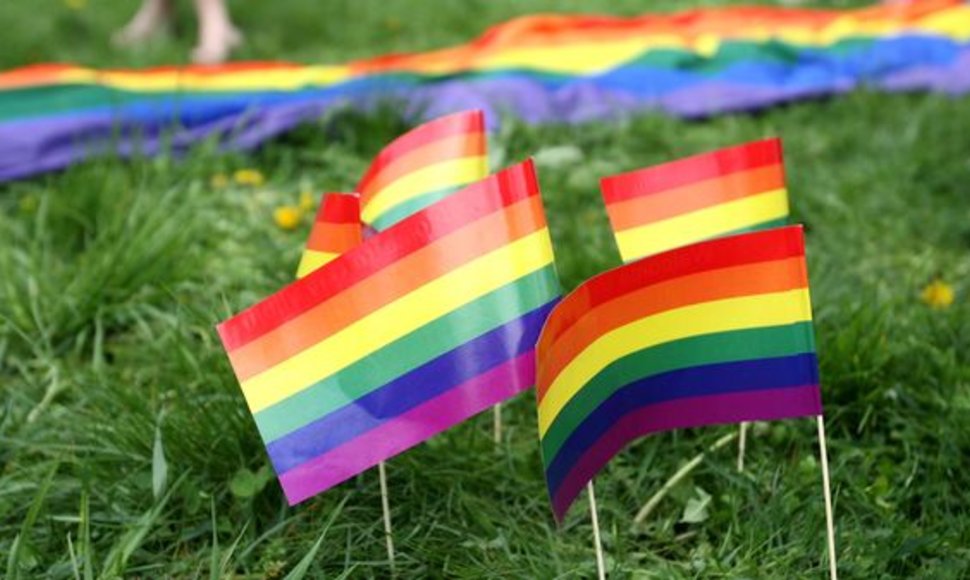The representative poll, carried out in November 2012, shows people in Lithuania are most likely to resent having contacts with Roma (59 percent) and former prisoners (57). They would also be most reluctant to be neighbours with homosexual people (47 percent of respondents) and individuals with mental disability (44 percent).
The survey, commissioned by the Office of Equal Opportunities Ombudsman, shows that the mentally disabled and Roma are seen as the least popular co-workers (44 and 41 percent, respectively). Prisoners and homosexuals are also likely to be resented in workplace (39 and 35 percent, respectively). On the other hand, Lithuanians are quite tolerant of people who do not speak Lithuanian – the view expressed by 66 percent of respondents.
Dr Vilana Pilinkaitė-Sortirovič, fellow at the Ethnic Research Institute, says that the line-up of the most resented groups have not changed for several years now. “Surveys done since 2005 indicate similar trends – the least popular groups are: the Roma, people with mental disability, people who completed a prison sentence, and homosexuals.”
The researcher believes the reasons behind this are complex and therefore require systematic approach. Working with the society, she says, should be given particular attention. Solving social problems afflicting the country's Roma community should be among the steps in tackling their ostracism. “Roma integration programmes pay particular attention to education and preserving their traditions, but other means are necessary, too – those aimed at developing social skills,” Dr Pilinkaitė-Sortirovič tells 15min.
Commenting on the survey results, Dr Margarita Jankauskaitė of the Centre for Equality Advancement points out two complementary tendencies: on the one hand, people claim they do not wish to live or work in the presence of homosexuals, while on the other, they admit they do not personally know any. “That means that attitudes are not formed via direct contact but rather through second-hand information – based on what someone said or suggestively commented,” Dr Jankauskaitė says. “Given that homophobia has been systematically encouraged on the highest political level for the last four years, we should not be surprised that the situation is getting worse.”
Tolerance for discrimination
The representative survey also reveals that Lithuanians are most likely (61 percent of all respondents) to accept discrimination against former prisoners.
On the other hand, the Lithuanian society has become more accepting of Russian-speakers (the balance of respondents indicating their opinion has improved over the last five years versus those reporting a decline is +14) and people with physical disabilities (+21). Attitudes have become more negative towards the homosexuals (–14) and former prisoners (–12).
“Survey results have revealed that Lithuanians are homophobic and that the situation is getting worse: homosexuals are among the least accepted groups to have as neighbours and colleagues,” the study concludes.
Interesting to note that most Lithuanians think that labour relations is the area where discrimination is most rampant – as reported by 62 percent of respondents. 46 percent believe it is law enforcement.
Lithuanians believe that the most common form of discrimination is ageism (49 percent). 41 percent think that discrimination on the basis of sexual orientation dominates, 40 percent say it is disability.
Dr Jankauskaitė notes that the Lithuanian society is ageing and therefore elderly people are beginning to dominate demographic composition of the population. Meanwhile work culture (attitudes towards elderly employees) are not changing as quickly as social realities: “Many employers – much like the society at large – are affected by the cult of youth and still foster a dream of hiring the “ideal” employee, i.e., a young male who belongs to the ethnic majority, is energetic, unburdened by family issues, responsibility for kids, and boasts excellent health.”
People do not know where to turn for help
According to the survey, only 11 percent said they knew where to turn in if they witness discrimination. Only one percent said they had reported cases of discrimination, while 18 percent had not. Among the most likely reasons behind the silence were disillusionment and conviction that their speaking up would not change anything. 56 percent of those who said they had not reported discrimination did not think their report would have made a difference; 40 percent thought they would be inconvenienced as a result.
The study surveyed 1,020 people between 15 and 75 who permanently reside in Lithuania. The margin of error is under 3.2 percent. The survey was carried out in November 2010 by the Labour and Social Research Institute. It was commissioned by the Office of Equal Opportunities Ombudsman, in accordance to EU “Progress” programme.















